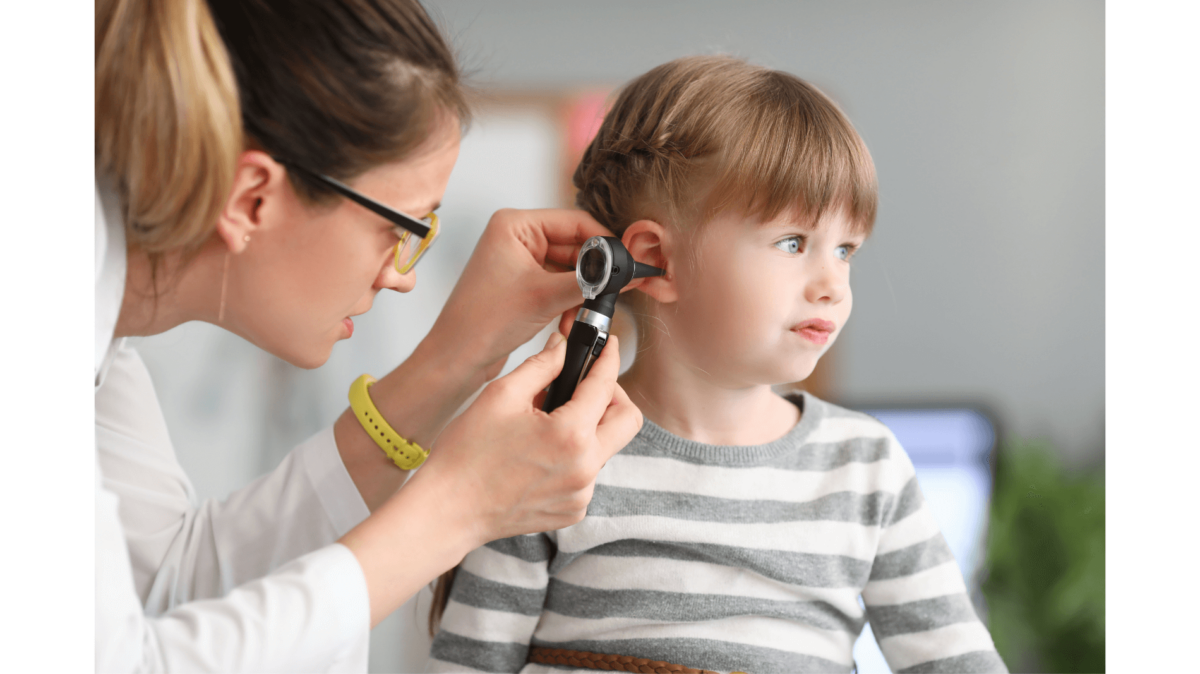
Understanding Hearing Loss in Children: How You Can Safeguard Little Ears
Parenthood is a journey filled with countless milestones, from a baby’s first smile to the excitement of those early steps. But what happens when a child’s laughter and the pitter-patter of little feet are accompanied by concerns about their hearing?
The Importance of Early Detection
Hearing plays a crucial role in a child’s development. It is the gateway to language acquisition, communication, and social interaction. Identifying hearing loss early is essential, as it allows for timely intervention. This minimizes potential setbacks in a child’s speech and language development.
Signs to watch for include:
- Delayed Speech and Language: Children with hearing loss may exhibit delays in speech and language development. Pay attention to age-appropriate milestones and consult with a healthcare professional if concerns arise.
- Difficulty Following Directions: Children with hearing loss may struggle to understand and follow verbal instructions. If you notice your child frequently asking for repetition or seeming unsure about what was said, it’s worth investigating further.
- Volume Preferences: Excessive volume preferences, such as consistently watching TV at high volumes, could be indicative of hearing difficulties.
- Limited Social Interaction: Hearing loss can impact a child’s ability to engage socially. If you observe your child withdrawing from conversations or exhibiting signs of frustration during interactions, consider a hearing assessment.
Types and Causes of Hearing Loss in Children
Hearing loss in children can be congenital (present at birth) or acquired (developed after birth). Congenital hearing loss may be hereditary or the result of factors during pregnancy, birth, or genetics. Acquired hearing loss can be caused by infections, exposure to loud noises, or certain medical conditions.
Common causes of hearing loss include:
- Genetic Factors: Inherited genetic considerations can contribute to hearing loss. If there is a family history of hearing impairment, it’s advisable to monitor a child’s hearing closely.
- Ear Infections: Frequent or untreated ear infections can lead to temporary or permanent hearing loss. Timely medical intervention and monitoring are essential.
- Premature Birth: Premature babies may be at an increased risk of hearing loss due to the development of their auditory system. Regular hearing screenings are often recommended for preterm infants.
- Exposure to Loud Noises: Prolonged exposure to loud noises, such as loud music or machinery, can contribute to hearing loss. Implementing protective measures, such as children’s earmuffs, is essential in noisy environments.
Hearing Aids for Children
Hearing aids are a common intervention for children with hearing loss. Modern pediatric hearing aids are designed to be discreet, comfortable, and equipped with features that cater to the unique needs of little ears.
Our top tips for parents include:
- Regular Maintenance: Ensure that your child’s hearing aids are kept clean and well-maintained. Regular checks for wax buildup and proper functioning are essential.
- Positive Reinforcement: Encourage your child to embrace their hearing aids as part of who they are. Positive reinforcement, praise, and normalization can contribute to their confidence and acceptance.
- Follow-up Appointments: Schedule regular follow-up appointments with your hearing health specialist to monitor your child’s hearing health and make any necessary adjustments to the hearing aids.
- Educate Peers: Foster an inclusive environment by educating your child’s peers, teachers, and caregivers about hearing loss. Building awareness helps create a supportive community.
The Role of Hearing Health Specialists
Hearing health specialists are trained professionals who know all about hearing. They play a vital role in conducting hearing assessments, diagnosing hearing loss, and guiding intervention strategies.
Hearing Assessments: Regular hearing assessments are recommended for children, especially during critical developmental stages. These assessments, often conducted in a child-friendly environment, help identify any potential hearing issues early on.
Early Intervention: If hearing loss is detected, early intervention is crucial. Hearing health specialists work closely with families to determine the most appropriate course of action, which may include hearing aids, cochlear implants, or other assistive technologies.
Navigating Hearing Loss with Your Little One
By watching for signs of hearing difficulties, seeking professional guidance, and fostering a positive and inclusive environment, parents and caregivers can empower children with hearing loss.
Remember, every step forward, every word spoken, and every new sound is a celebration of resilience and growth. Little ears have the remarkable capacity to absorb the beauty of the world, and with the right support, your little one can thrive. Visit us today to learn more.
